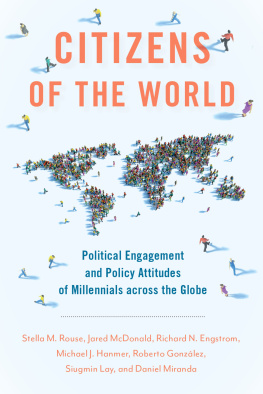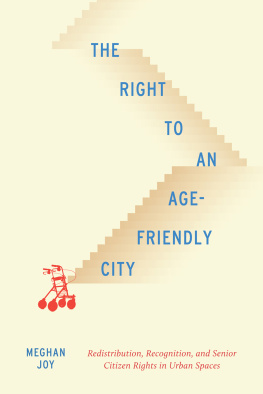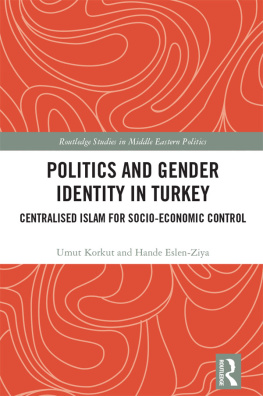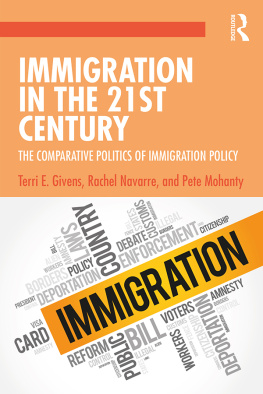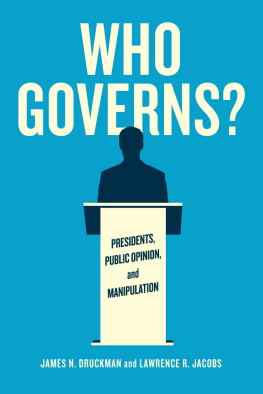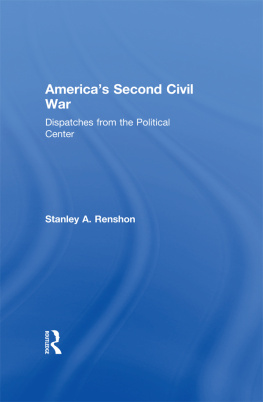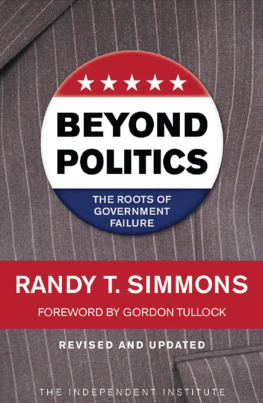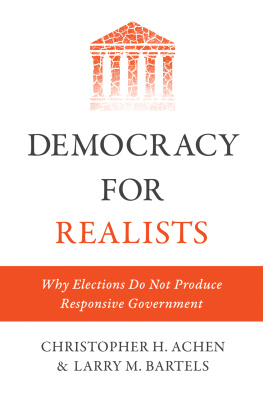Debates over redistribution, social insurance, and market regulation are central to American politics. Why do some citizens prefer a large role for government in the economic life of the nation while others wish to limit its reach? In Open versus Closed , the authors argue that these preferences are not always what they seem. They show how deep-seated personality traits underpinning the culture wars over race, immigration, law and order, sexuality, gender roles, and religion shape how citizens think about economics, binding cultural and economic inclinations together in unexpected ways. Integrating insights from both psychology and political science and twenty years of observational and experimental data the authors reveal the deeper motivations driving attitudes toward government. They find that for politically active citizens these attitudes are not driven by self-interest, but by a desire to express the traits and cultural commitments that define their identities.
Christopher D. Johnston is an assistant professor of political science at Duke University. He is coauthor of The Ambivalent Partisan: How Critical Loyalty Promotes Democracy (2012), which won both the David O. Sears award from the International Society of Political Psychology and the Robert E. Lane award from the American Political Science Association. His peer-reviewed research has been published in the American Journal of Political Science , Journal of Politics , Public Opinion Quarterly , Political Psychology , American Politics Research , and elsewhere.
Howard G. Lavine is Arleen C. Carlson Professor of Political Science at the University of Minnesota and director of the Center for the Study of Political Psychology. He is coauthor of The Ambivalent Partisan: How Critical Loyalty Promotes Democracy (2012), which won both the David O. Sears and Robert E. Lane book awards. He has published articles in The American Political Science Review , American Journal of Political Science , Journal of Personality and Social Psychology , the New York Times , and elsewhere. He is past editor of Political Psychology and current editor of Advances in Political Psychology and Routledge Studies in Political Psychology .
Christopher M. Federico is a professor of psychology and political science at the University of Minnesota. His research interests include ideology and belief systems, the psychological foundations of political preferences, and intergroup attitudes. He is the recipient of numerous awards, including the 2007 ISPP Erik Erikson Award for Early Career Achievements, the 2007 ISPP Roberta Sigel Junior Scholar Paper Award, and the International Society for Justice Researchs 2009 Morton Deutsch Award. His research has been published in the Journal of Personality and Social Psychology , American Journal of Political Science , Public Opinion Quarterly , Political Psychology , and elsewhere.
Christopher D. Johnston
Howard G. Lavine
Christopher M. Federico
University Printing House, Cambridge CB 2 8 BS , United Kingdom
One Liberty Plaza, 20th Floor, New York, NY 10006, USA
477 Williamstown Road, Port Melbourne, VIC 3207, Australia
4843/24, 2nd Floor, Ansari Road, Daryaganj, Delhi 110002, India
79 Anson Road, #06-04/06, Singapore 079906
Cambridge University Press is part of the University of Cambridge.
It furthers the Universitys mission by disseminating knowledge in the pursuit of education, learning, and research at the highest international levels of excellence.
www.cambridge.org
Information on this title: www.cambridge.org/9781107546424
DOI: 10.1017/9781316341452
Christopher D. Johnston, Howard G. Lavine, and Christopher M. Federico 2017
This publication is in copyright. Subject to statutory exception and to the provisions of relevant collective licensing agreements, no reproduction of any part may take place without the written permission of Cambridge University Press.
First published 2017
Printed in the United States of America by Sheridan Books, Inc.
A catalog record for this publication is available from the British Library .
ISBN 978-1-107-12046-4 Hardback
ISBN 978-1-107-54642-4 Paperback
Cambridge University Press has no responsibility for the persistence or accuracy of URLs for external or third-party Internet Web sites referred to in this publication and does not guarantee that any content on such Web sites is, or will remain, accurate or appropriate.
CJ: For Amy and Hannah
HL: For my fathers, Ira S. Somerson and Edward W. Lavine
CF: For my mother
Were born to be righteous, but we have to learn what, exactly, people like us should be righteous about.
Jonathan Haidt, The Righteous Mind (2012: 26)
We do not see things as they are; we see them as we are.
The Talmud
Contents
Figures
Tables
Acknowledgments
This book has taken a winding path, and we owe a debt of gratitude to a number of people who have directly and indirectly contributed to it. First, a special thank you to Stanley Feldman, who was the primary advisor on Johnstons dissertation. We would also like to thank our home departments at Duke and Minnesota, which have provided both intellectual nourishment and financial resources that enabled us to complete our research and writing. From Duke, special thanks go to Sunshine Hillygus and John Aldrich for help in obtaining data used in two chapters. From Minnesota, we are grateful to our colleagues in political psychology Gene Borgida, Paul Goren, Joanne Miller, Dan Myers, and Wendy Rahn who provide a wise and steady sounding board for all of our ideas.
We are also grateful to Jamie Druckman and Jeremy Freese for administering the National Science Foundationfunded Time-Sharing Experiments for the Social Sciences, and for their help with the study on libertarianism reported in Smith, Paul Sniderman, and Chuck Taber for their path-breaking work on personality, partisanship, motivated reasoning, and the biological bases of political attitudes. To the extent we are successful, it is due in large part to what we have learned from these individuals. All failures, errors, and omissions, of course, are ours alone.
On a more personal note, Johnston would like to thank Amy Lee Johnston for being his best friend, partner, and travel companion, for the sacrifices she has made and continues to make for his career, and for Hannah, who is perfect. He would also like to thank his immediate and extended families for their love and support. To mom Eileen, and siblings Erin, Jeff, Cory, and Sarah; and to Rita, Chuck, Mark, Sharon, Brendan, Logan, Carey, and Casey: thank you for all you do for Amy, Hannah, and me.
Lavine thanks the Carlson Family Foundation, as well as the College of Liberal Arts and the Department of Political Science at the University of Minnesota for financial support during the writing of this book. He also thanks his former chairs, Bud Duvall and Joan Tronto, who provided invaluable professional and personal counsel. Finally, Lavine thanks his children, Seamus and Finnian Lavine, for providing a daily dose of wonderment, joy, challenge, and love, and his wife, JaneAnne Murray, who gives so much to so many.
Federico thanks his parents, Valerie Federico and the late Kenneth Federico. Much of his success is due to the support, encouragement, and guidance they have provided. Chris also thanks his wife, Penny Nichol, for her love and her willingness to share her quantitative expertise with him; and his sons, Paul and Adam, for their patience while he was occupied with this project. In addition, he thanks his many wonderful students and coauthors, in particular Grace Deason, Damla Ergun, Emily Fisher, Corrie Hunt, and Michal Reifen Tagar, for their contributions to earlier work that influenced some of the ideas we develop in this book. Finally, he would be remiss not to thank Mark Edward Smith, David Robert Jones, and James Newell Osterberg Jr. for creative energy and inspiration over the years.


